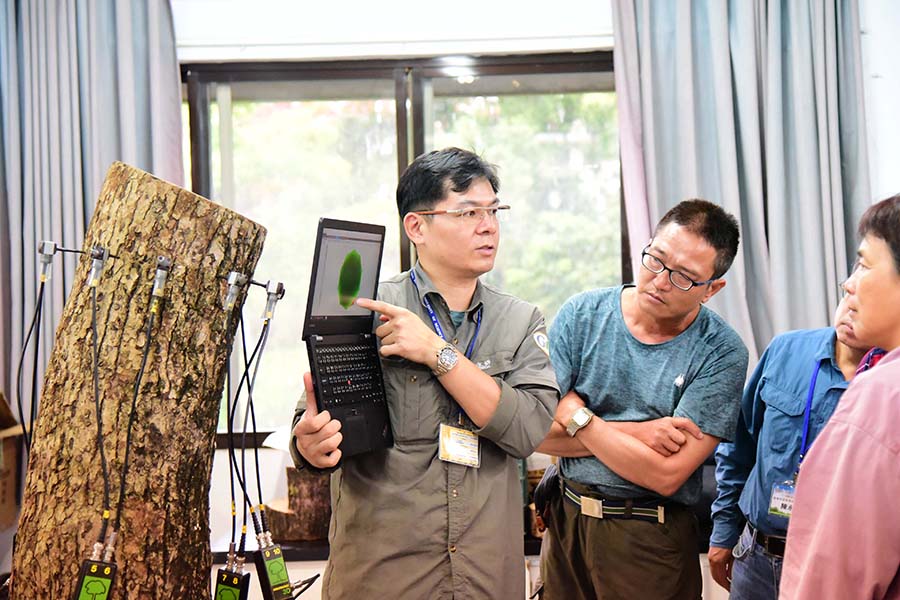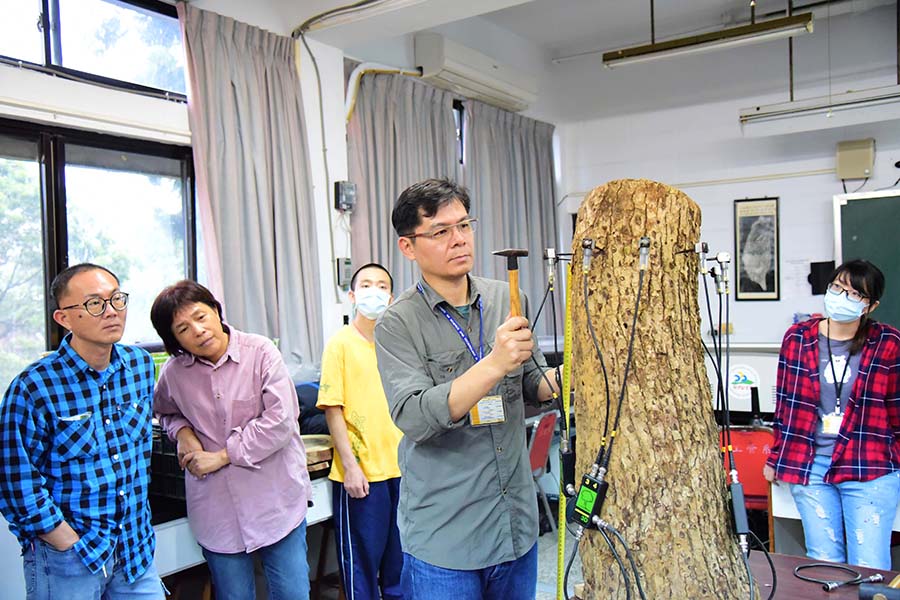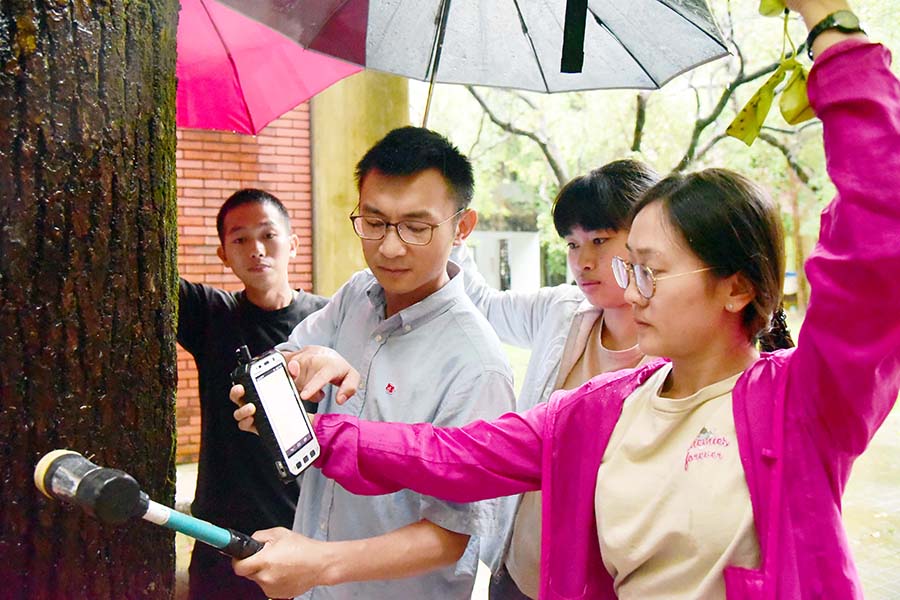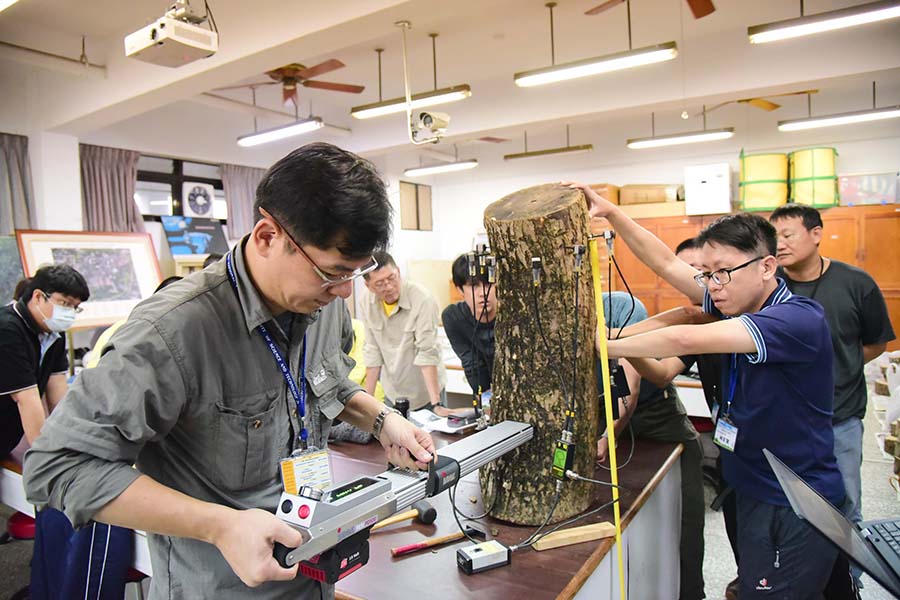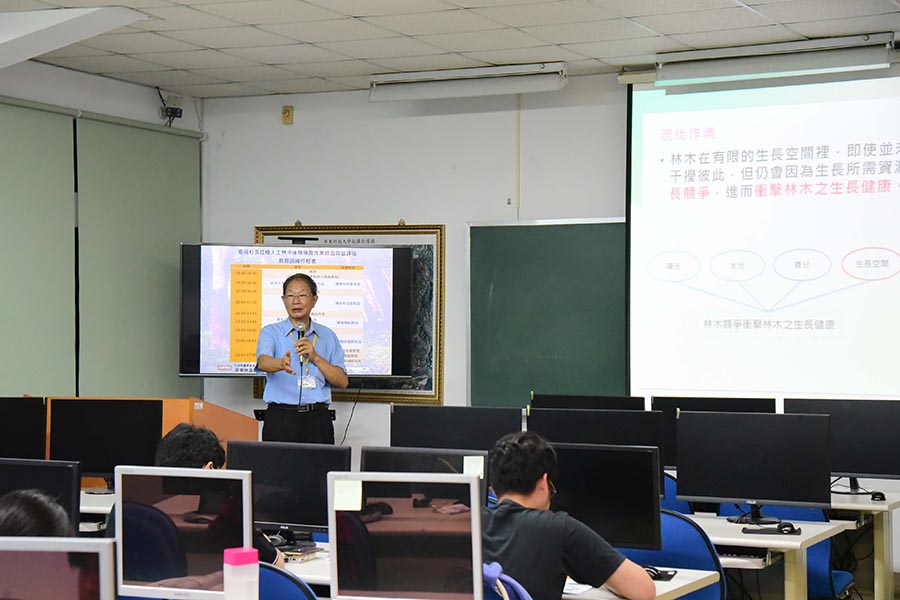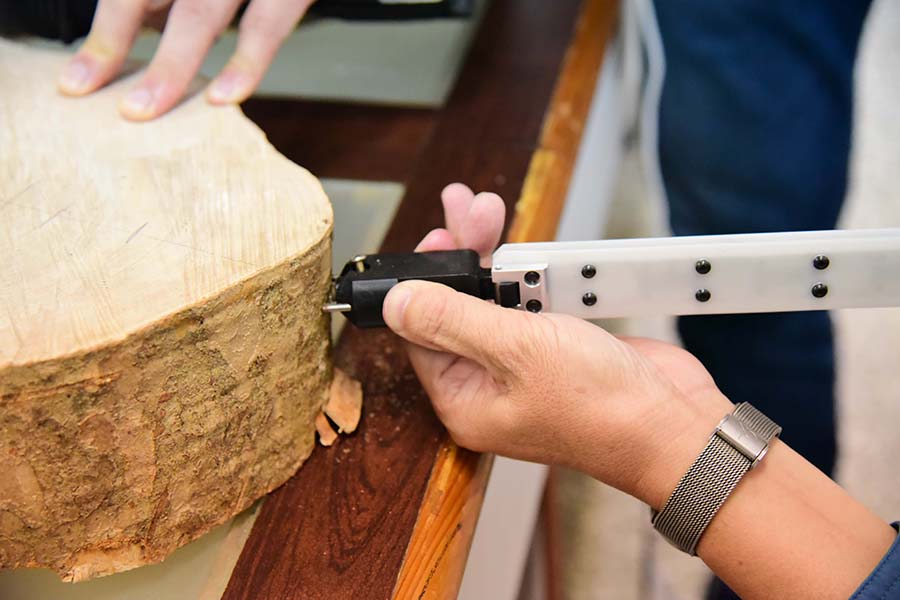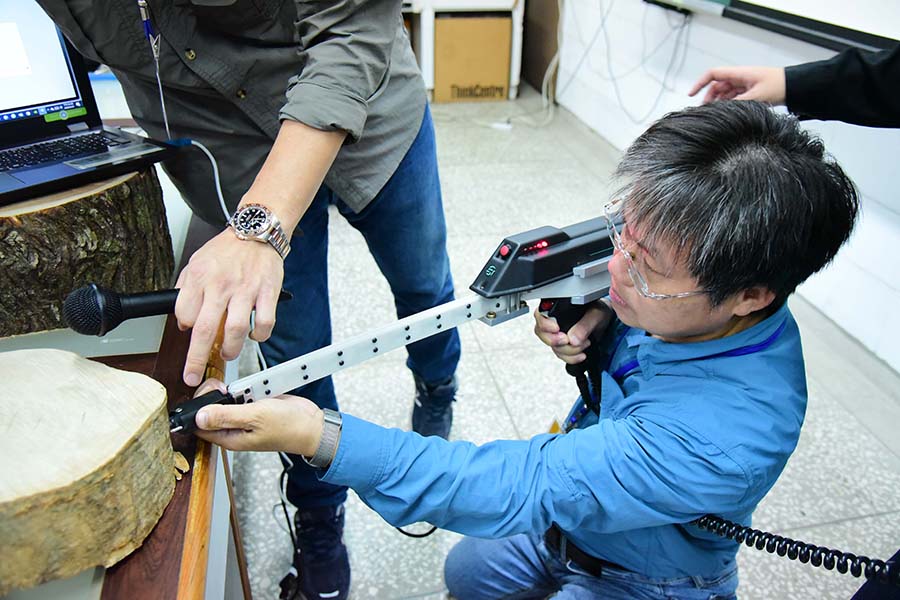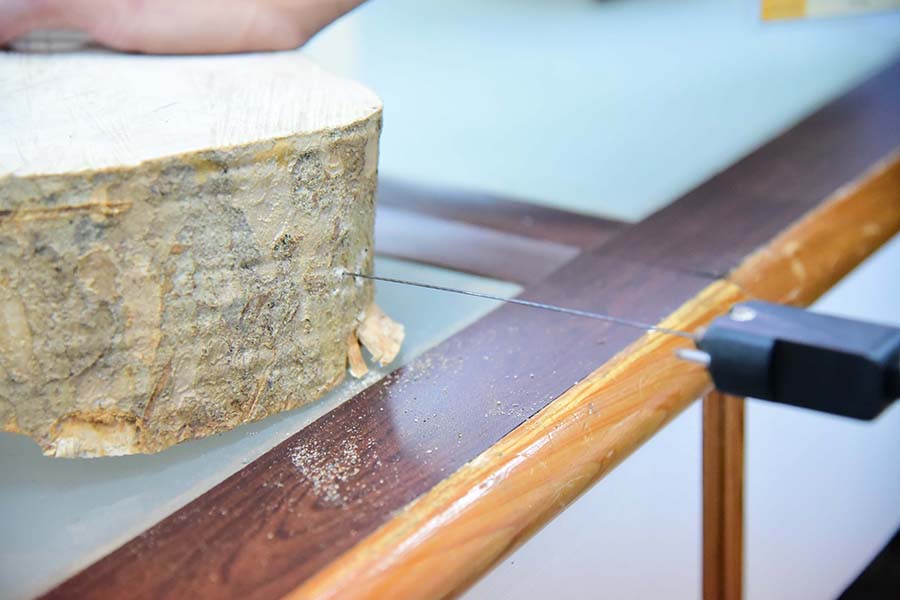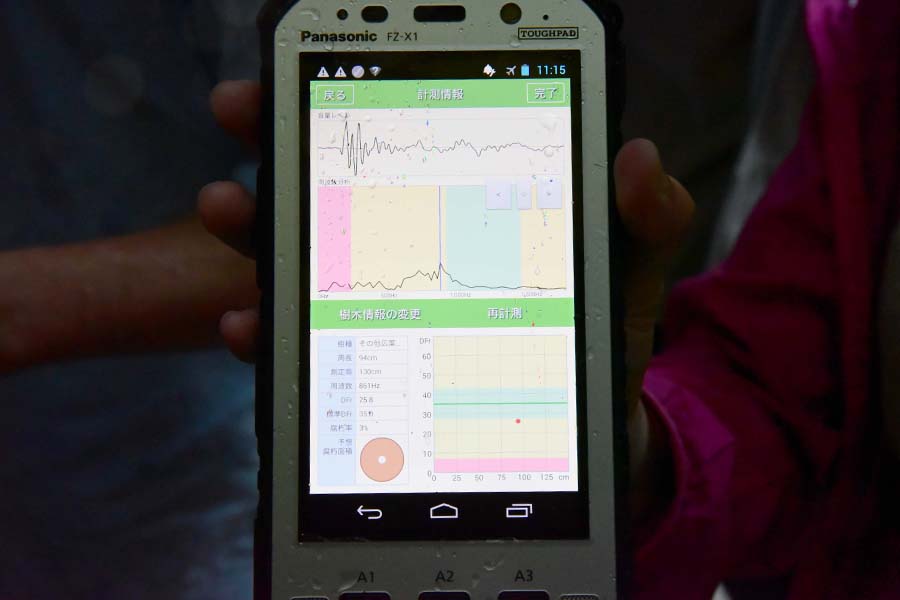Over the years the attention of forestry departments has shifted significantly towards ideas of sustainable development and ecological conservation. With such goals in mind, Assistant Professor Dr. Chien-Chang Chen of the NPUST Department of Forestry began working with the Pingtung County Forestry Bureau in 2017 to develop smart forest management models to help improve forest health.
To keep the trajectory going, this May (22/5/2020) a training program was held for Forestry Bureau personnel from a number of stations in the southern Kaohsiung and Pingtung area. During the classes, the participants were instructed on how to use various new models of equipment to conduct “non-destructive” tests designed to assess forest health. For training purposes, the group used the equipment to evaluate mid- and late term tending operations at Taiwan fir and red cypress plantations.
Professor Chen explained that “in the past, when forest health tests were performed, the tests that were used caused damage. Often times trees needed to be cut down – or other procedures were used that would create wounds in the trees and allow for bacteria or pests to invade, creating the potential for infection or death to occur. Also, due to such factors as human resources, cost and regulations, it is not possible to conduct health surveys on large areas of forest.”
About 60 percent of Taiwan is covered in forest, and the goal is to keep those forests healthy. Thus the “non-destructive tests” were developed so that tests could be done while keeping the trees whole and not doing damage to their functionality. This involves external observation techniques and use of instruments to test the trees’ physical properties, mechanical properties, and the quality of their internal structure. With the tiny probes that are used to test the internal structure of the trees, the injuries which are caused are very small. The techniques are also more efficient and can be used to conduct surveys on much larger areas of forest.
During the training course, the participants learned about a number testing’s methods including visual assessments, use of DmP digital probes for detecting wood strength, and sonar tests for assessing internal rot. The instruments are also easy to get a handle on and can help forest management agencies obtain and upload information conveniently, so that they have more comprehensive bodies of data to refer to as they develop conservation strategies.
NPUST first began holding this type of training program in 2019. At that time training was provided on Lidar telemetry technology and use of UAVs in survey applications. The members of the Pingtung Forest District Office who took part in the training expressed that through smart forestry technology, they save man power, reduce error, and obtain data which can assist in the work of managing Taiwan’s forested areas.

